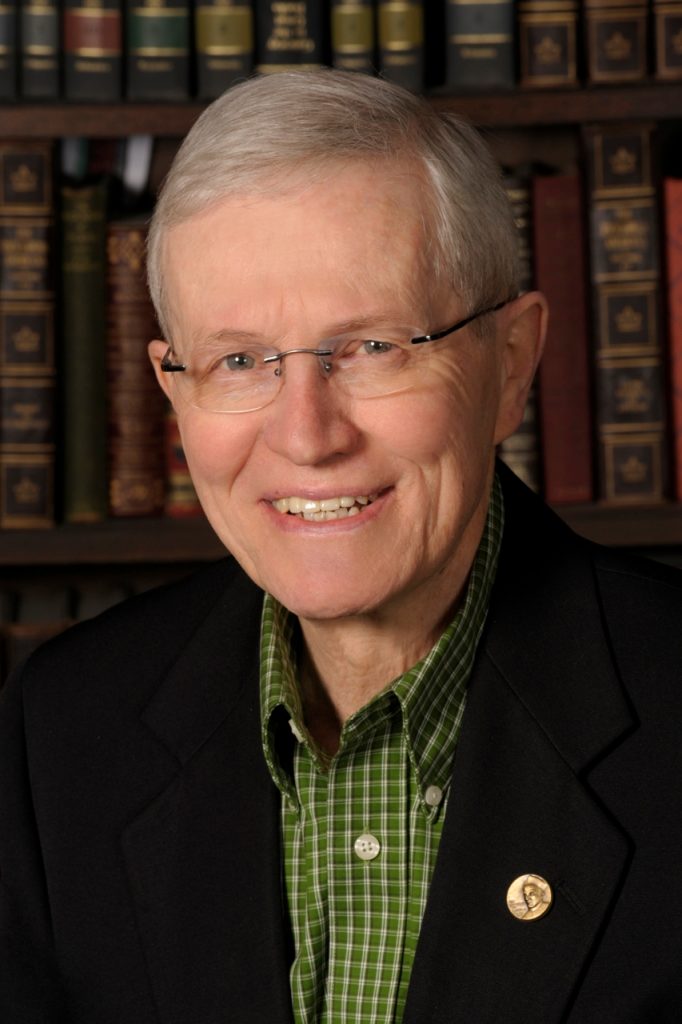
The following reflection was written by St. Michael’s Interim Principal Dr. Mark McGowan.
Though born in Syracuse, NY, Terry Fay had a Canadian heart and served the Catholic community in Canada with grace, dignity, and sensitivity. His parents Hugh Fay and Susan Dunne were from County Cavan, Ireland, and emigrated to the United States from London, England, in 1926. Terry, the only boy among three sisters, was named after his uncle Terry, who had died in a work-related accident in Florida. His early education in Syracuse’s public schools was followed by university studies at Le Moyne College (1949-1953). It was at LeMoyne where he made two important choices: he switched his program of study from Engineering to History and, inspired by his Jesuit professors, decided to join the Society of Jesus.
Terry’s unsuccessful attempt to join the Jesuit Province of New York, after what he described as a “disaster” of an interview, prompted him to take the Provincial’s advice and seek admission to the Jesuit Province of Upper Canada. In 1954, he entered the Jesuit novitiate in Guelph, and the rest is history. He acquired a BA in Philosophy at Gonzaga University in Spokane (1961) and a doctorate at Georgetown University (1971), where he completed a dissertation on the Rush-Bagot Agreement of 1818. He spent the next fourteen years teaching history at the Jesuit-run St. Paul’s College at the University of Manitoba, in Winnipeg. In 1985, the Provincial invited him to Toronto to undertake the research for the planned Dictionary of Jesuit Biography. He soldiered away at research using his office at St. Mary Street as a home base, while teaching part time at St. Augustine’s Seminary. He joined the Canadian Catholic Historical Association in 1986, and for the next thirty-five years served the Association in many executive capacities, including over a decade as Treasurer. He became very good friends with the late Father Ed Jackman, OP, with whom he shared many adventures as they drove to Ottawa annually for meetings of the Historia Ecclesiae Catholicae Canadensis. Earlier this morning, former CCHA President, Dr. Peter Meehan, wrote that “I also have so many happy memories of Terry and Ed [Jackman] together – there is something poetic about them passing within months of each other.”
When the dictionary of biography was completed, Terry continued part-time teaching at the Seminary and at the University of St. Michael’s College, in both its undergraduate and graduate divisions. It was his new teaching experiences in Church History at USMC that prompted him to write a survey history of the Catholic Church in Canada, A History of Canadian Catholics: Gallicanism, Romanism, and Canadianism. Published by McGill-Queen’s University Press in 2002, the book remains the standard narrative of the Canadian Church, and a necessary read for all students of religious history in Canada. Terry was not finished. He realized that there were great gaps in his own book, particularly regarding Catholic immigrants to Canada who had recently arrived in Canada. This lacuna prompted Terry to visit the Filipino, Chinese, Korean, Tamil, and Vietnamese communities across Canada and then travel to Asia to research the Catholic origins of these many new Catholic Canadians. The result of Terry’s labours was The New Faces of Canadian Catholics: The Asians, published by Novalis in 2009. In addition to his many articles published in CCHA Historical Studies, Terry completed his third monograph, Canadian Catholic Spirituality: Saints and Sinners over 400 Years, published by Tellwell (Victoria) in 2021. In 2014, at its annual meeting at Brock University, the CCHA awarded Terry its highest honour, the George Edward Clerk Medallion, for distinguished contributions to the writing of the history of the Catholic Church in Canada.
His passing on Sunday, September 5, in Pickering, Ontario, has come as a shock to many who knew and loved him, particularly parishioners at Our Lady of Lourdes Parish in Toronto and its Jesuit community, members of Canada’s Filipino and Chinese communities, his extended family members to whom he was unofficial chaplain, and to his colleagues in the CCHA.
This past spring, during the pandemic, Terry wrote his short memoires and, as had been his practice, gave it to me for editing and suggestions. I was deeply moved by his life story, and his writing confirmed in me his gentleness, empathy, and personal humility. He wrote: “These memoires do not necessarily document the Jesuit ideal of the ‘magis,’ always seeking the highest good in the service of God but explain the service of God in an ordinary way.” Terry was far from ordinary, although his personal humility would not let him see himself otherwise. May he rest in peace; we have lost an “extraordinary” friend and colleague.

